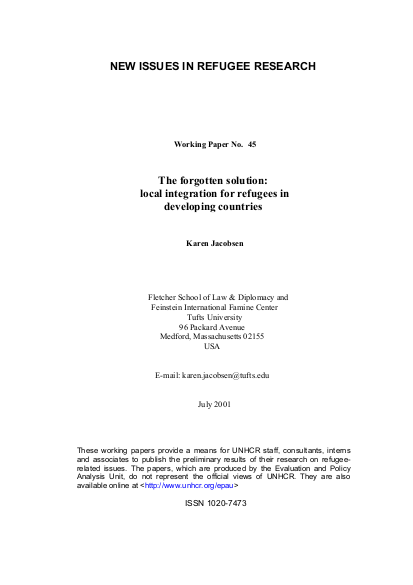
This paper seeks to remedy the ‘research gap’ by exploring the circumstances in which refugees in protracted situations live outside of camps and pursue a sustainable existence within the host community. The premise is that because many self-settled refugees do become integrated into the host community, largely without official assistance, a policy of assisted local integration in which refugees, the local population and the host government are encouraged and enabled to work together, is potentially workable in protracted situations. However, a revitalized local integration policy must be modified from traditional approaches to local integration.
